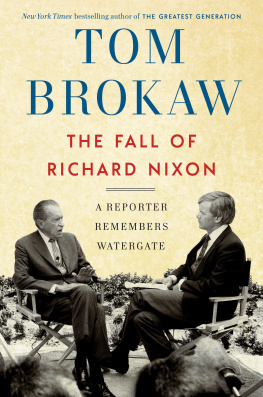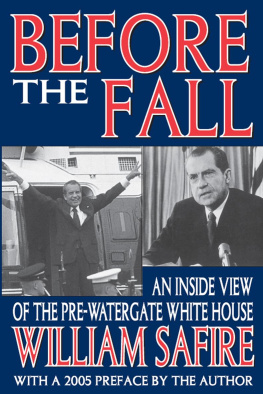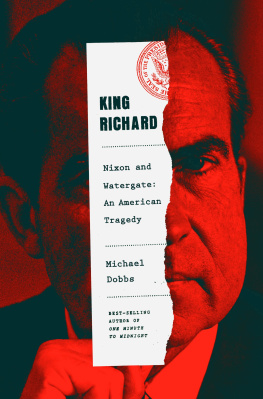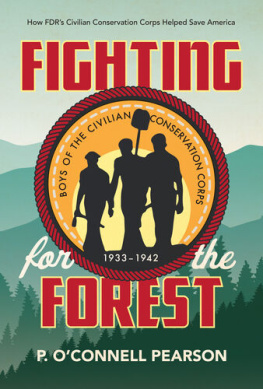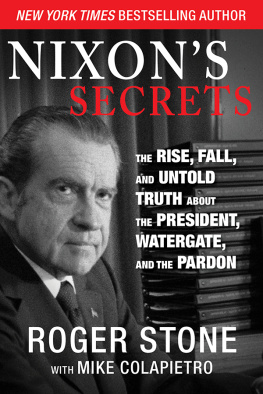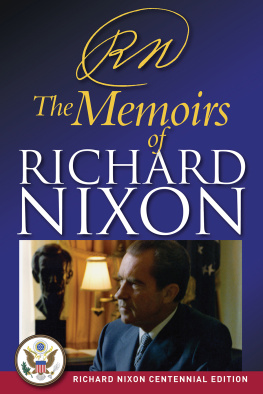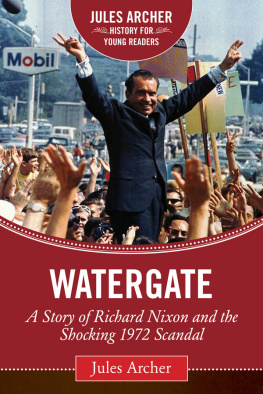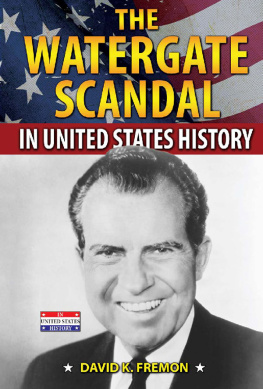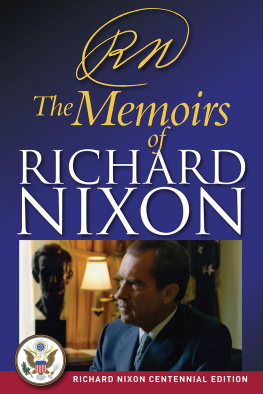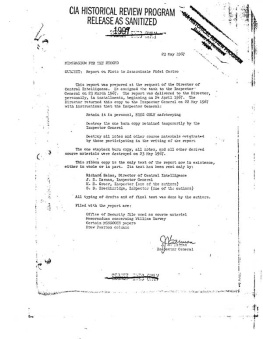Tom Brokaw - The Fall of Richard Nixon: A Reporter Remembers Watergate
Here you can read online Tom Brokaw - The Fall of Richard Nixon: A Reporter Remembers Watergate full text of the book (entire story) in english for free. Download pdf and epub, get meaning, cover and reviews about this ebook. year: 2019, publisher: Random House, genre: Politics. Description of the work, (preface) as well as reviews are available. Best literature library LitArk.com created for fans of good reading and offers a wide selection of genres:
Romance novel
Science fiction
Adventure
Detective
Science
History
Home and family
Prose
Art
Politics
Computer
Non-fiction
Religion
Business
Children
Humor
Choose a favorite category and find really read worthwhile books. Enjoy immersion in the world of imagination, feel the emotions of the characters or learn something new for yourself, make an fascinating discovery.
- Book:The Fall of Richard Nixon: A Reporter Remembers Watergate
- Author:
- Publisher:Random House
- Genre:
- Year:2019
- Rating:3 / 5
- Favourites:Add to favourites
- Your mark:
- 60
- 1
- 2
- 3
- 4
- 5
The Fall of Richard Nixon: A Reporter Remembers Watergate: summary, description and annotation
We offer to read an annotation, description, summary or preface (depends on what the author of the book "The Fall of Richard Nixon: A Reporter Remembers Watergate" wrote himself). If you haven't found the necessary information about the book — write in the comments, we will try to find it.
Tom Brokaw: author's other books
Who wrote The Fall of Richard Nixon: A Reporter Remembers Watergate? Find out the surname, the name of the author of the book and a list of all author's works by series.
The Fall of Richard Nixon: A Reporter Remembers Watergate — read online for free the complete book (whole text) full work
Below is the text of the book, divided by pages. System saving the place of the last page read, allows you to conveniently read the book "The Fall of Richard Nixon: A Reporter Remembers Watergate" online for free, without having to search again every time where you left off. Put a bookmark, and you can go to the page where you finished reading at any time.
Font size:
Interval:
Bookmark:
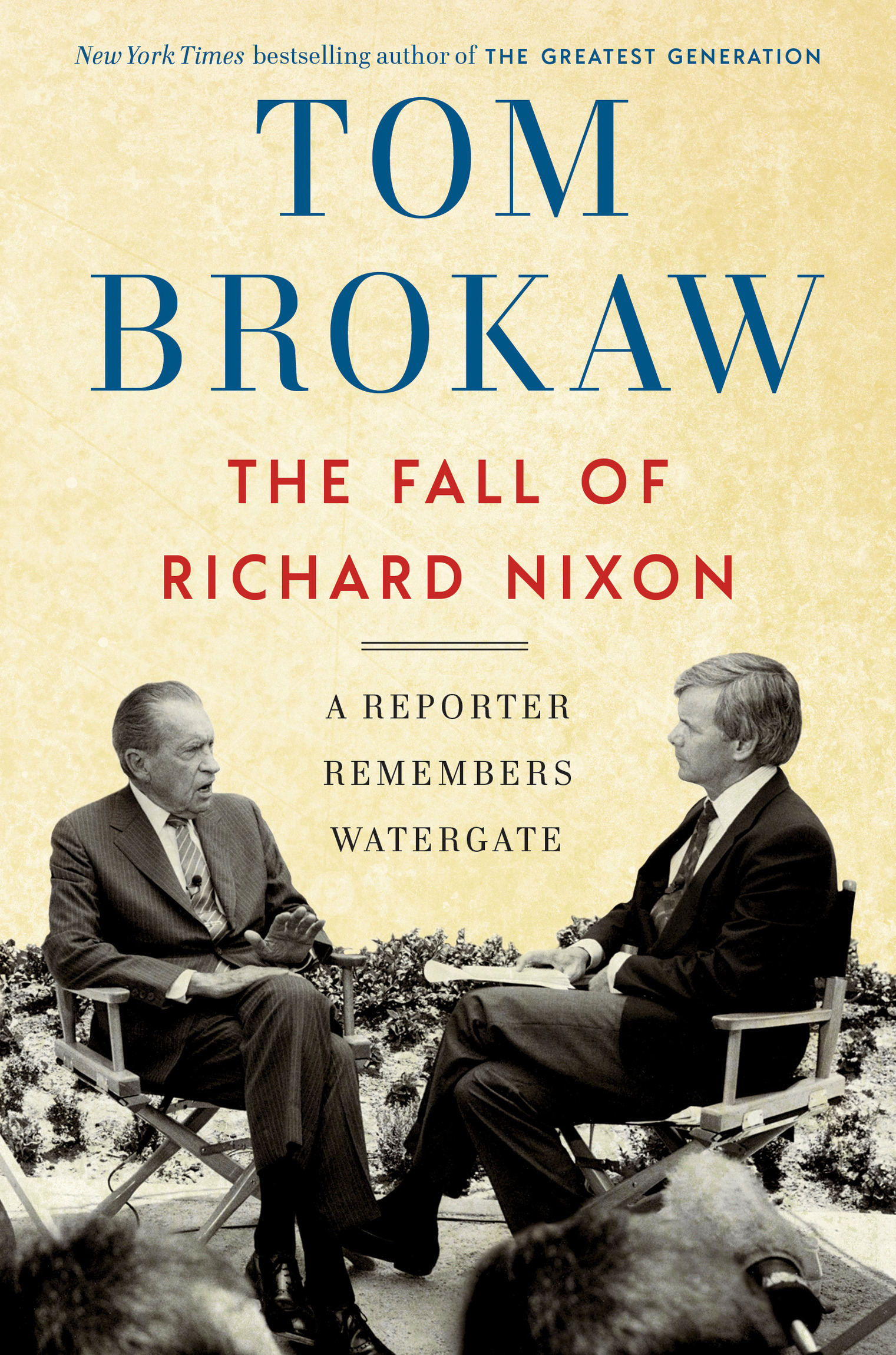
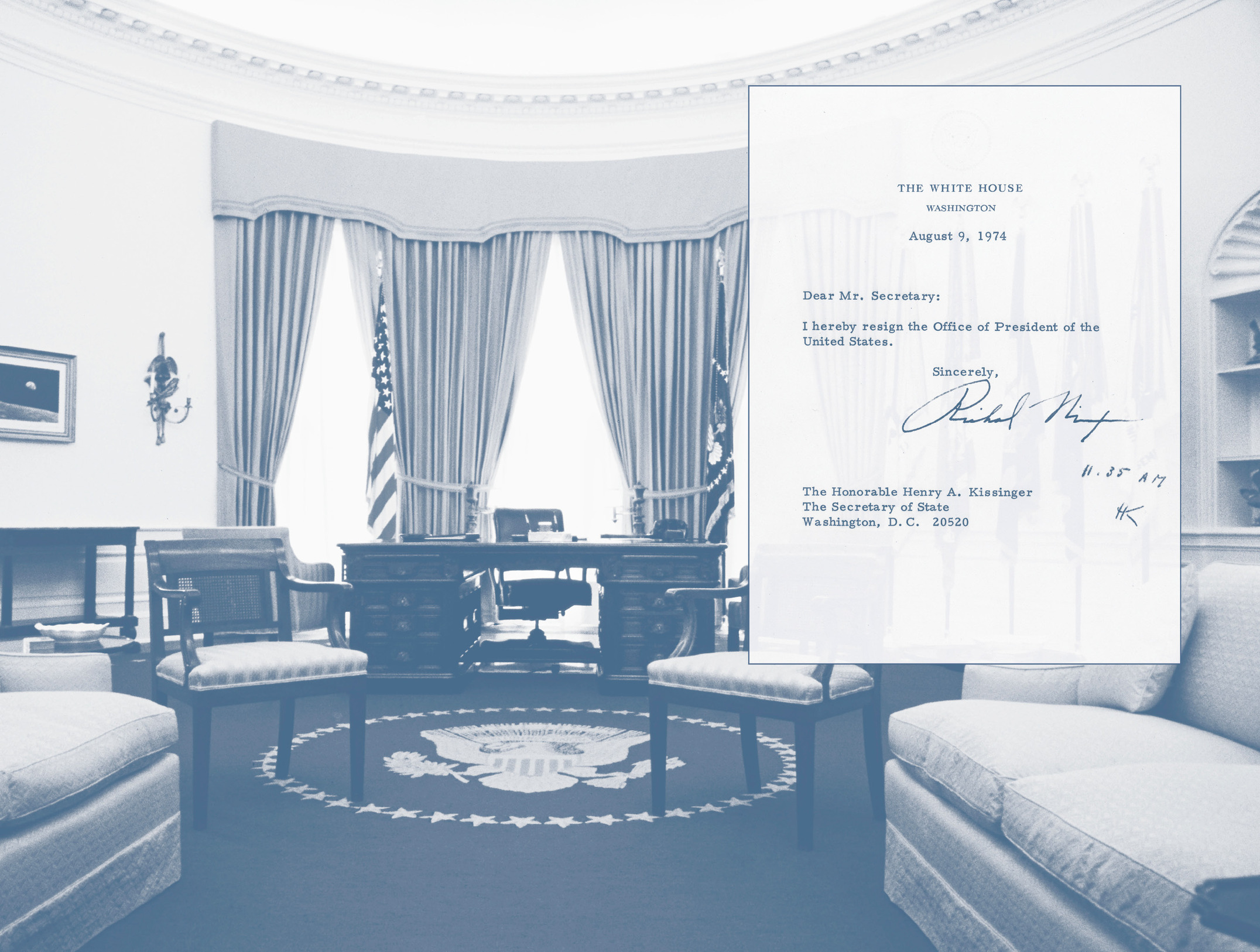
President Nixons letter of resignation, addressed to the Secretary of State in accordance with the law of presidential succession, first passed in 1792.

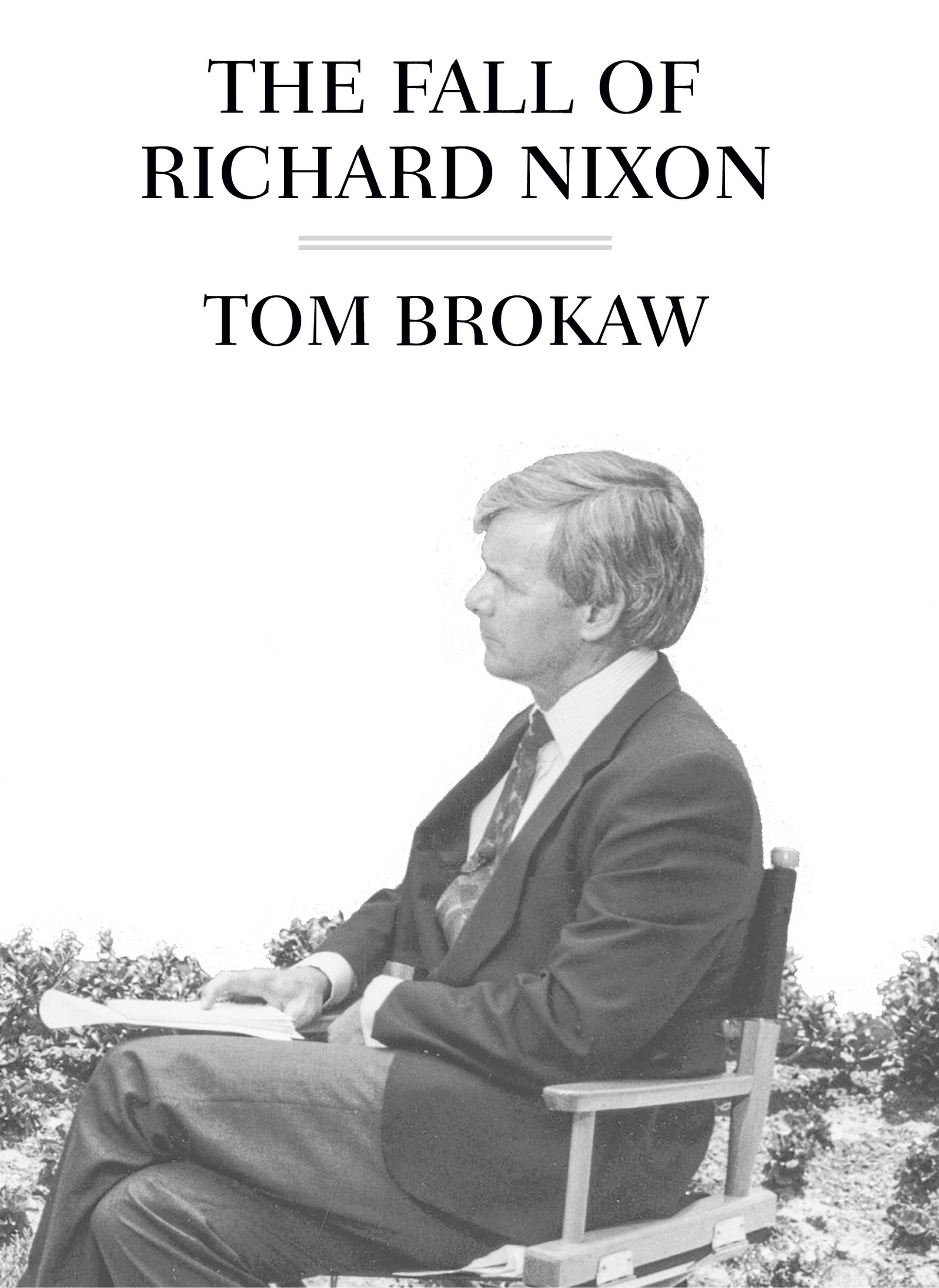
Copyright 2019 by Tom Brokaw
All rights reserved.
Published in the United States by Random House, an imprint and division of Penguin Random House LLC, New York.
R ANDOM H OUSE and the H OUSE colophon are registered trademarks of Penguin Random House LLC.
L IBRARY OF C ONGRESS C ATALOGING-IN- P UBLICATION D ATA
N AMES : Brokaw, Tom, author.
T ITLE: The fall of Richard Nixon: a reporter remembers Watergate / Tom Brokaw.
D ESCRIPTION : First edition. | New York: Random House, [2019] | Includes index.
I DENTIFIERS : LCCN 2019029798 (print) | LCCN 2019029799 (ebook) | ISBN 9781400069705 (hardcover) | ISBN 9780679604679 (ebook)
S UBJECTS : LCSH : Nixon, Richard M. (Richard Milhous), 1913-1994. | Watergate Affair, 1972-1974Press coverage. | United StatesPolitics and government1969-1974.
C LASSIFICATION : LCC E 860 . B 76 2019 (print) | LCC E 860 (ebook) | DDC 973.924092 [ B ]dc23
LC record available at lccn.loc.gov/2019029798
LC ebook record available at lccn.loc.gov/2019029799
Ebook ISBN9780679604679
randomhousebooks.com
Book design by Carole Lowenstein, adapted for ebook
Cover photograph: Robert Lachman/Los Angeles Times/Getty Images
PRECEDING PAGES: Interviewing Richard Nixon for the opening of his presidential library.
v5.4
ep
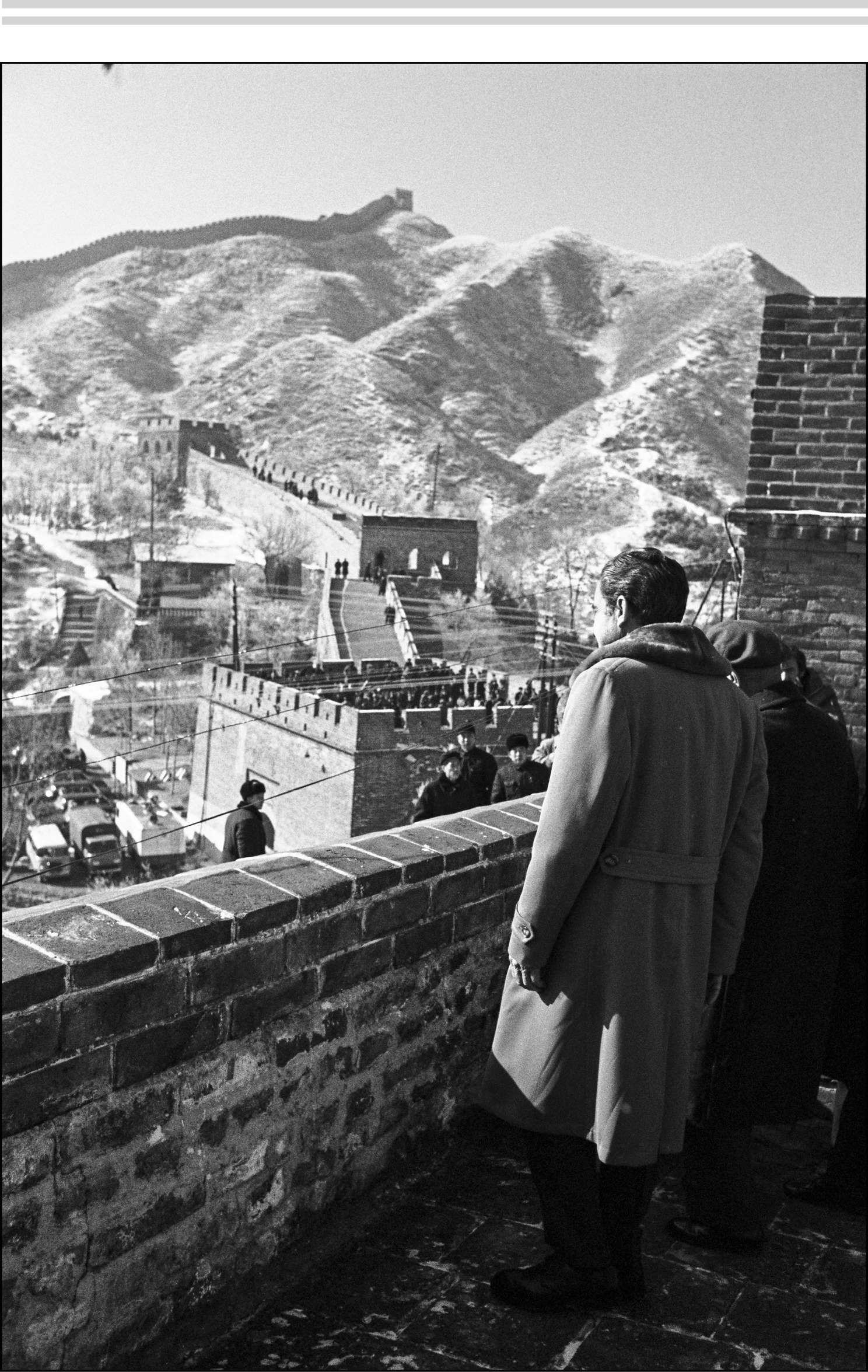
Who was Richard Nixon?

Just inside the stately columned building that houses the Richard M. Nixon Presidential Library near his boyhood home in Yorba Linda, California, there is a poster-size white-on-black greeting that asks the evocative question: WHO WAS RICHARD NIXON?
From his humble beginnings until his death in 1994 Richard Nixon spent much of his life working and striving, rising and falling and rising again, and always daring greatly in whatever arena he entered. The legacy of Richard Nixons 50 years in the arenaas Theodore Roosevelt called the political worldremains controversial. Was he a peace maker or a warmonger? Did he bring the country together or did he divide it? Did he leave the nation and the world a better place or not?
The answers are far from simple. So as you walk through these galleries, take a moment to step into a Presidents shoes. Explore Richard Nixons life and career from the inside and come to your own conclusion. Decide for yourself. Who was Richard Nixon?
That provocative invitation is not far from a stylish gallery recording Nixons historic visit to China, alongside another that depicts his efforts to ease tensions with the Soviet Union. His bold and very controversial management of the Vietnam war receives dramatic attention.
Then, in a separate corridor, oversize capital letters in bright red: WATERGATE , the scandal that brought him down, presented here in bold candor and unblinking detail. The last year of his presidency, from August 1973 to August 1974, was Richard Nixons darkest, most indefensible time in the arena.
I was White House correspondent for NBC News during that turbulent time, and recently Ive been reflecting on the enduring lessons, high drama, and historic consequences of that fateful year. It is, if you will, a reporters experience of Watergate, the final act. It is a mix of what I saw, experienced, and concluded as Watergate played out. But it is also a mix of what Bob Woodward and Carl Bernstein learned later in their superb book The Final Days. Evan Thomass post-Watergate reporting for Being Nixon: A Man Divided was equally helpful and important. All of this was before electronic social media, before the reporting universe exploded into an expanding mass of fact, speculation, propaganda, and artifice. It is one reporters personal recollection of a time of great consequence for the nation and for a man who, even in death, provokes the question: Who was Richard Nixon?
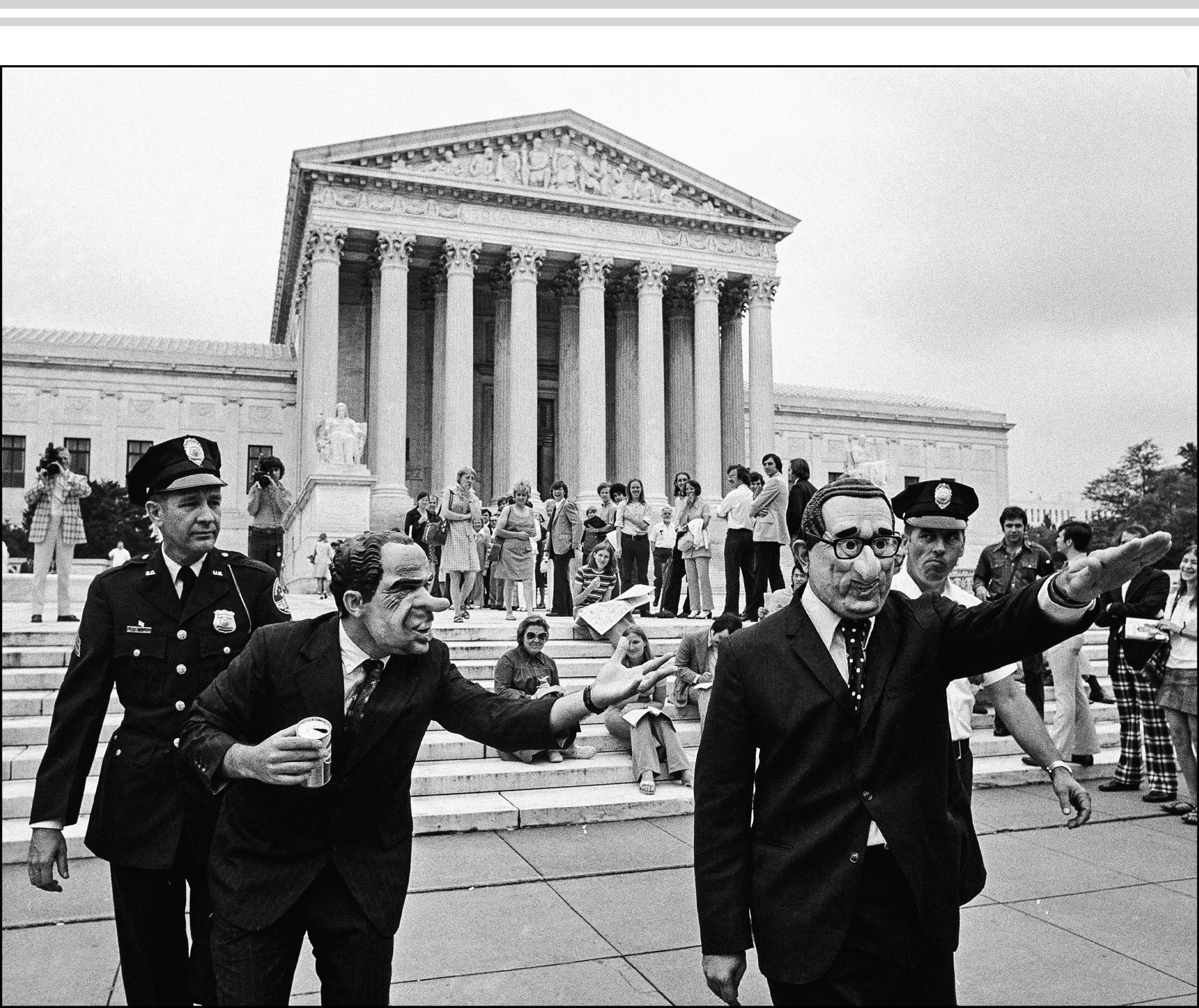
Police escort demonstrators from the Supreme Court, where a crowd awaited a ruling on the Watergate tapes. On the day the Supreme Court ruled, Nixon appeared to have hit a wall.

This is how the presidential world of Richard Nixon ends.
On July 24, 1974, the president is holed up in San Clemente, California, at La Casa Pacifica, his grand seaside mansion. It is less than an hour south of the presidents very modest childhood home in Yorba Linda, the working-class community where he grew up as a bright, awkward, and ambitious child in a Quaker household largely bereft of familial affection.
On this sunny day in late July, the White House press corps is housed in the commodious Surf & Sand, a pricey oceanfront hotel in Laguna Beach. The bucolic setting and sybaritic life in the bar and on the beach make for an unlikely setting in which to deal with the serious issues that brought us here.
As a member of that White House appendage, I am hanging out with my colleagues in a makeshift communications office attached to the hotel. We are awaiting a routine daily briefing from the White House press office on the presidents schedule, but our attention is focused on a stately building two miles east of the White House in the nations capital.
The U.S. Supreme Court.
Eight justices are preparing to announce their decision on one of the most momentous cases in American history. A ninth, Justice William Rehnquist, has recused himself because he was an assistant attorney general during Nixons first term. The essential question is, Does a president have the right to withhold from Congress tape recordings and other relevant material in a case involving suspected illegal behavior in the Oval Office? It is the pivotal issue in the long, complex, and historic case known as Watergate. Simply put, it asks whether the president was an active participant in the cover-up of a burglary that unraveled into a massive conspiracy in which senior White House aides, members of the presidents cabinet, higher-ups in the Justice Department, officials of the FBI, and senior members of the presidents 1972 campaign for reelection all had a role.
Suddenly the word arrives: eight justices of the high court have voted against the president. He must turn over all relevant material to the special prosecutor investigating Watergate, including tape recordings in which he described what actions he wanted taken. Finally Congress and, just as important, the American people will hear, in his own voice, just what the president wanted. Despite the presidential resistance to the long line of testimony, leaks, and circumstantial evidence leading to this moment, it appears that Mr. Nixon has hit the wall.
Font size:
Interval:
Bookmark:
Similar books «The Fall of Richard Nixon: A Reporter Remembers Watergate»
Look at similar books to The Fall of Richard Nixon: A Reporter Remembers Watergate. We have selected literature similar in name and meaning in the hope of providing readers with more options to find new, interesting, not yet read works.
Discussion, reviews of the book The Fall of Richard Nixon: A Reporter Remembers Watergate and just readers' own opinions. Leave your comments, write what you think about the work, its meaning or the main characters. Specify what exactly you liked and what you didn't like, and why you think so.

